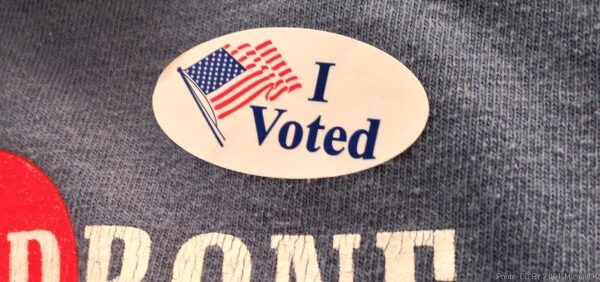2016 is an election year, and with the new year comes both opportunities and challenges to the voting rights of Montana citizens. Indians in Montana have been routinely denied rights since Montana first became a territory. Although many tribes have lived in Montana for thousands of years, they were denied United States citizenship until the passage of the federal Indian Citizenship Act in 1924, less than a century ago. Even then Indians were not welcomed as citizens, but instead were subject to a determined campaign by the State of Montana and its political subdivisions to marginalize Indians as voters.
Today the voting opportunities for Montana’s Indian citizens as voters are improving. In the recent case of Wandering Medicine v. McCulloch, three counties (Blaine, Big Horn, and Rosebud), along with the Montana Secretary of State, were sued in federal court for failing to provide satellite voting offices on the Crow Reservation, the Fort Belknap Reservation, and the Northern Cheyenne Reservations. Voters on these three reservations had to travel greater distances than non-Indians to vote, to access voter registration services and early absentee voting services. The Wandering Medicine suit, in which the ACLU of Montana filed a friend of the court brief, was settled in 2014 and several limited satellite voting offices were created on the three reservations.
In 2015, the Office of the Secretary of State issued a new directive, going above what was required by the Wandering Medicine settlement, creating a process allowing for satellite voting offices on all seven of the Indian Reservations in Montana. A satellite office is more than just another polling place. Although it also acts as a polling place, it also provides voter registration, and absentee balloting, for up to 30 days before any primary or general election.
Under Secretary McCulloch’s 2015, directive, all Montana counties in which a reservation is located were mandated to conduct an analysis under the Voting Rights Act to determine whether a satellite office would be appropriate. The counties were then required to contact the affected tribal government to inform them of their analysis, and to find out if the tribal government wanted a satellite voting office. By January 31, 2016, the tribal governments had to choose whether to have a satellite office, where the proposed office would be located on the reservation, and the hours and dates of operation for the office.
As part of our Racial Justice Project, the ACLU of Montana, working with Western Native Voice (a grassroots voting rights organization focused on Indian voters) assisted the Fort Peck Tribes and the Confederated Salish and Kootenai Tribes in making requests for satellite offices. The Fort Peck Tribes requested satellite voting offices in Poplar (in Roosevelt County), and in Frazer (in Valley County). The Confederated Salish and Kootenai Tribes requested a satellite voting office in Elmo (in Lake County). Many other tribal governments have also requested satellite offices. According to the Montana Secretary of State’s office, five new satellite offices in Indian Country are already in the works, and six more are under consideration. The ACLU of Montana is glad to contribute to this new process, and to help support the right to vote for all Montanans.

